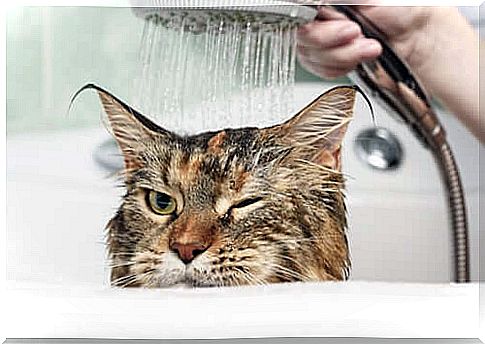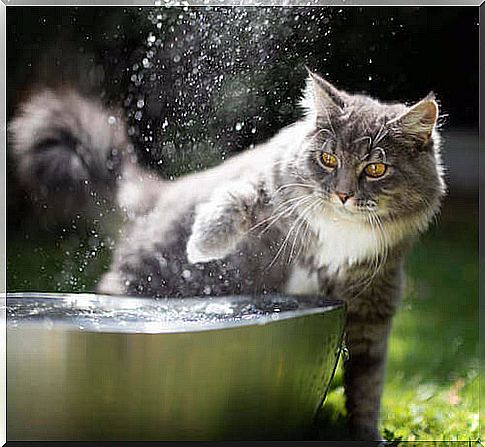Why Do Cats Hate Water? Let’s Unravel The Mystery

The idea that cats hate water is one of the most common misconceptions in popular culture. Although there are evolutionary mechanisms that could justify felines’ fear of this fluid, it seems that this conditioning is due more to the animal’s personality than to its genetic code.
In addition to the fear of not being familiar with this liquid, cats can hate water due to negative experiences. The feeling of overwhelm that wet fur generates in them terrifies them.
Furthermore, through the sense of smell they are able to detect the presence of chemicals present in the water. Let’s find out the reasons for this widespread behavior in the world of felines.
The evolutionary history of cats
According to archaeological studies, the domestic cat ( Felis silvestris catus ) is a direct descendant of the African cat ( Felis silvestris lybica ), a feline subspecies native to North Africa and the Middle East.
It is believed that farmers in the Near East lands have come into contact with these wild cats around 10,000 years ago.
One reason for the domestication of this animal may have been the pest presence of the rodents that lived in those places. For this reason, farmers have allowed and encouraged the presence of cats on the streets of their villages and in their fields.
It is the perfect example of a symbiotic relationship between humans and animals. Cats got food and humans could free themselves from rodents, with all the benefits that this entailed. After thousands of years, the close contact between humans and cats has led us to the kind of relationship we have with this animal today.
Why are environmental conditions important in understanding why cats hate water? As we said earlier, domestic cats are direct descendants of a typical species of the Orient, a region of the world with a landscape characterized by arid zones, deserts and grasslands.
They are territories where water is scarce, therefore, the closest relative of the domestic cat was not familiar with this fluid. Furthermore, since its diet was mainly based on rodents and birds, it did not have to venture to the banks of rivers in search of prey, except in exceptional cases.

Why do cats hate water?
Over the years, domestic cats have not evolved to come into contact with water. Therefore, exposure to water causes them various discomforts. Some of the sensations a cat experiences when wet are:
- The feline feels like he’s wearing a wet towel. This is because the cat’s coat did not evolve to be waterproof.
- Cats detect smells that humans do not perceive. They are therefore able to identify the presence of chemical elements present in the water. These artificial odors scare the animal.
- Cats’ ears are oversized compared to the rest of the body. This fact increases the risk of getting infections due to the easy penetration of water.
As you can understand, cats did not evolve to come into contact with water or to swim. Their coat gets soaked quickly increasing their body weight and hampering their gait. In addition, the fact that the ears easily fill with water causes a very unpleasant sensation in the animal.
Do cats need to bathe?
After what we have said, it is normal to ask this question. The answer is that cats don’t need to be bathed frequently. The cat takes care of its own hygiene by licking itself.
Despite this, from the age of one year, the cat can be bathed every three to four months. The dull and greasy coat and the bad smell it gives off are unmistakable signs that the cat needs to be cleaned.

Not all cats hate water …
While it is true that cats hate water (at least in most cases), there are breeds like the Maine Coon that have a much more waterproof coat and that, from time to time, do not disdain a bath when possible.








